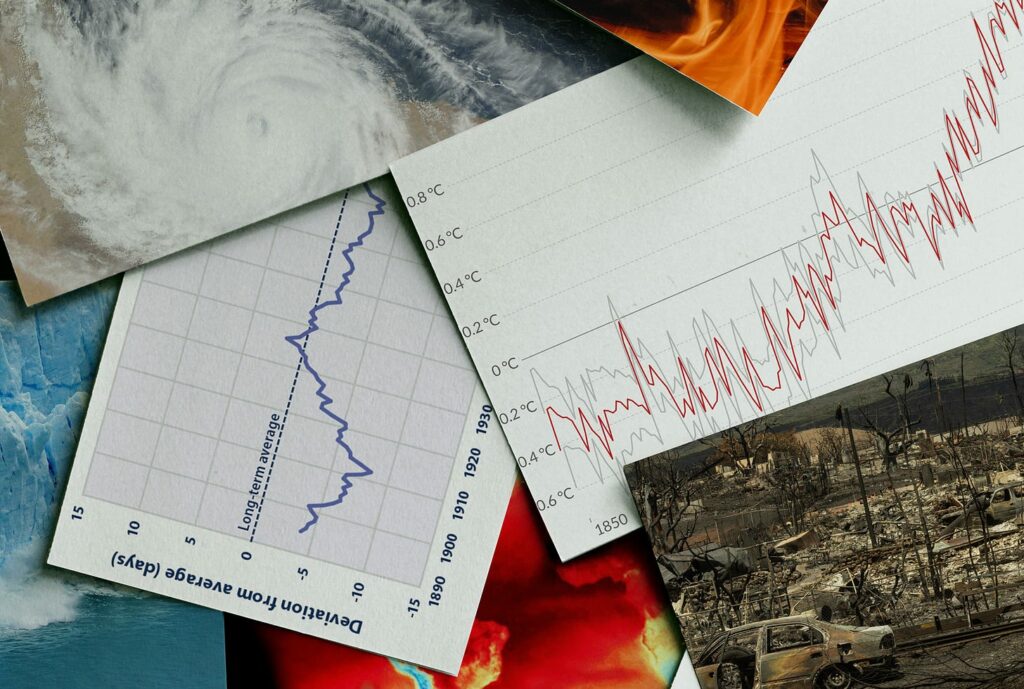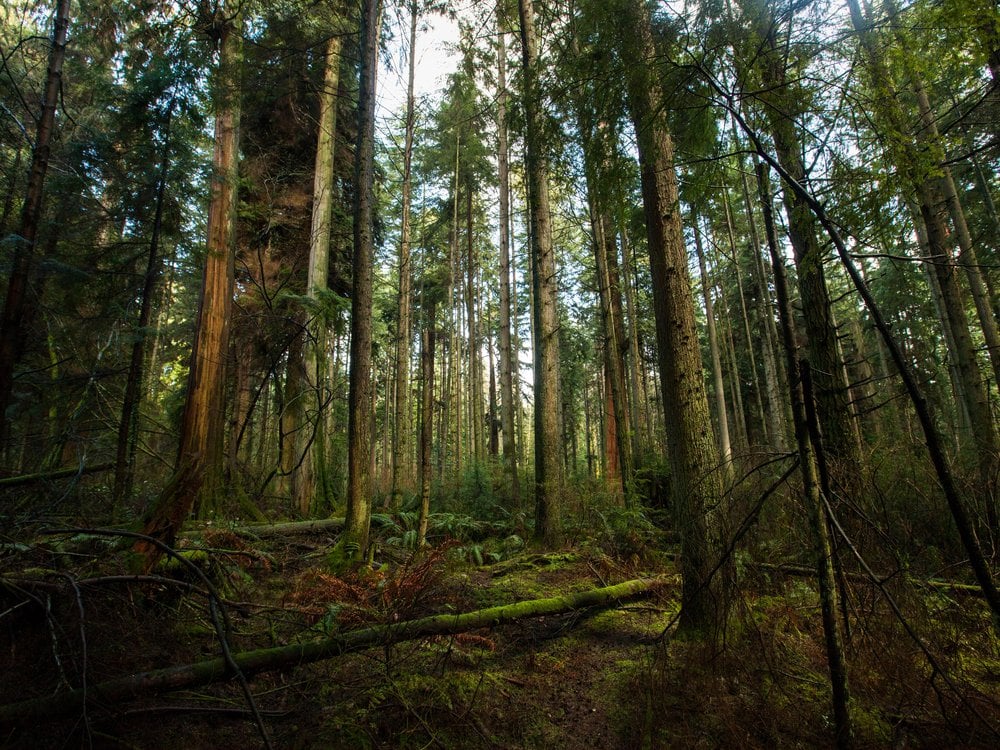One revealing recurring thing about climate alarmism is their obsession with making us eat bugs. It can’t be helping them win friends and influence people even if they insist that insects are secretly better-tasting and more wholesome than what we currently enjoy. But it does speak to two recurring features of radical thought by no means confined to this area. First, a conviction that ordinary people do everything wrong and it’s causing disaster and, second, a certainty that the radicals can redesign everything and get it better than tradition, the marketplace or even nature ever managed. So when we get an item “Superfood-based ‘beanless coffee’ could slash emissions and water use by 94%” it reminds us once again that climate alarmists are perfectly sincere, both in their conviction that humans are wrecking the Earth and that to stop we have to give up normal lifestyles, cars, homes, cities, and food.
There’s a strange “National Institute of Coordinated Experiments” vibe here involving what the Germans call Machbarkeit and the Greeks hubris. For instance Scientific American recently emailed us “Today in Science: Bugs could be the future of food”. To which our reflexive response is that humans, being ingenious, have often found protein in unlikely places when faced with starvation but it doesn’t mean protein in likely places is secretly bad. As Jared Diamond notes in Guns, Germs and Steel, agriculture came early to New Guinea but people ate frogs, spiders and mice because they had protein-poor crops and no domesticable animals. It wasn’t because they secretly tasted better and all those chumps eating beef in the Fertile Crescent failed to notice that creepy-crawlies were scrumptious. Not to mention that if we like beef, of course they discover it’s killing the planet. (Or us, as someone somehow persuaded our governments that eggs were too.)
No really. MSN tells us “Your diet is killing the planet – here’s how” and the, um, meat of the story is that:
“According to CNN, beef is the ‘most climate-damaging of all foods,’ producing 26.5 kg of CO2 emissions per kilogram of meat. Cows produce large amounts of methane, a potent greenhouse gas (GHG), and require a lot of water and land. So if you want the most planet-saving bang for your buck, cut beef from your diet.”
Never kale or alfalfa. Instead activists cheered on by the New York Times are trying to keep the world’s largest meat producer, JBS, from being listed on the New York Stock Exchange because of all the methane, CO2, deforestation and generally climate-changy evilness.
Or you could just ask Bill “Bury Trees” Gates:
“‘Of all the climate areas, the one that people are probably least aware of is all the fertilizer and cows, and that’s a challenge,’ Gates recently said on the latest episode of his podcast, ‘Unconfuse Me.’ The topic came up because Gates was in conversation with musician and director Ahmir ‘Questlove’ Thompson, who, like Gates, also happens to be an early investor in several plant-based food startups… Thompson, who is from Philadelphia, even recently partnered with Impossible to create a plant-based cheesesteak that counts former president Barack Obama as a fan, he told Gates.”
It would. A plant-based cheesesteak. At last we can begin to live. And of course Scientific American isn’t just trying to feed you a cricket as though you were, in fact, a frog. Heck no.
Instead, the linked article insists, “Gene-Edited Insects Are Providing Food, Fuel and Waste Disposal”. So not bogus old insects. Ones made in a lab… like the “chicken” they might still let you have. Specifically “black soldier flies (BSF, or Hermetia illucens) and mealworms (Tenebrio molitor)”. But one favoured company “has deployed 400 CRISPR–Cas9 guide RNAs to target about 150 genes that control metabolism, which yielded strains with bigger larvae, a longer larval period and increased resilience under stress.” So not the lousy mealworms evolution tossed off.
As for “black soldier flies”, well, onwards and upwards. Another company:
“is genetically engineering strains of black soldier for use as biofuel. Fly maggots are rich in lipids that could provide a sustainable alternative to crop oils. Another advantage is that BSF farming could tap into circular economy opportunities.”
So better bugs, better farming, better weather, better people.
According to Euronews.green, we backward shlubs need to wake up and smell the lack of coffee:
“A Seattle-based startup backed by some of the investors behind Beyond Meat is launching the world’s first beanless coffee this week. Its inventors hope to slash the environmental impact of the popular drink. The caffeinated brew uses superfoods and plant-based waste ingredients like date seeds to mimic the molecular structure of coffee.”
Right. Improving on mere meat is old news. Now we’re fixing java. And we could comment that the trendy fixation on “superfoods” is another of those weird examples of claiming that normal people experimenting with everything available over millennia, often in the shadow of malnutrition or famine, foolishly picked the nutritional weaklings as dietary staples and overlooked the giants. But the main thing is that the Beyond Meat people are at it again.
As we’ve observed, environmentalists once liked nature. Now they find it radically defective, including Bill Gates wanting to bury trees lest they should decompose in some environment-wrecking carbon cycle. And thus just growing coffee turns out to be increasingly impossible because of climate change and a cause of the climate change of which it is also a victim:
“As the world’s climate heats up, coffee farms – specifically those growing the more delicate arabica variety favoured by baristas – are moving uphill, destroying forests along the way in the search for cooler climes. Deforestation is the second leading cause of climate change after the burning of fossil fuels. Studies have shown that by 2050 roughly half the land currently used to grow coffee could be unproductive thanks to climate change.”
Now comes this firm of visionaries who claim their joe “caused 93 per cent fewer carbon emissions and used 94 per cent less water than regular coffee”, measured we know not how, and moreover:
“The firm expects to see similar figures for its new hot beanless coffee, which is also made using mostly upcycled ingredients like date pips, which tend to be discarded in the commercial production process. The seeds are soaked in grape extract, chicory and other flavours, and boosted with tea-sourced caffeine.”
So no more ersatz German coffee made from acorns, chicory, beechnuts and Royal Navy blockade. As an item on the totally neutral and dispassionate website “Coffee or Die Magazine” explains:
“For centuries, people (for one reason or another) have attempted to cut coffee or replace it entirely with other substances. And they left no stone, tree, or shrub unturned. In their effort to replace the delicious, aromatic bean we all know and love, humans have roasted nuts, tree bark, and roots of all kinds – but they all came up short.”
Especially “ersatz Caffee” which, Coffee or Die explains, quickly and permanently acquired an evil reputation:
“Ersatz goods were so notorious, the word stuck around and entered the English language when prisoners of war were given Ersatzkaffee while interned in prisoner-of-war camps. Ersatz is a noun in German; in English, it’s a negative adjective.”
That item also informs us that when coffee first became popular in Europe, after the Ottoman siege of Vienna ended in defeat and the seizing of the sultan’s coffee stash and they figured out that you should filter out the grounds (duh) and maybe add some cream and sugar:
“just because coffee was suddenly catching on with the nobles and bourgeoisie didn’t mean the kings of Europe had to like it. In fact, Prussian King Frederick the Great hated even the idea of German people drinking coffee. Frederick believed coffee was ruining the working class of his kingdom. Like many at the time, he thought it made men effeminate and caused sterility in women, so he imposed heavy taxes and licensing restrictions on roasting beans, and even hired a team of sniffers (not dogs, people) to go out and find bootleggers.”
So it’s an old impulse on the part of our supposed betters to snatch from our hands those things we like, and are too dumb to realize are making us effeminate and boiling the planet.



"...it reminds us once again that climate alarmists are perfectly sincere..."
Generalizations like this are much less than helpful, CDN. "Climate alarmists" run the gamut. A few are "perfectly sincere," but they are a fringe minority of climate alarmists. As your own constant reporting illustrates, most are grifters and hypocrites, herd-followers and mindless repeaters of crap they don't even understand. I appreciate the value of the principle of charity in debates, but sometimes you have to call a spade a bloody shovel.
Quebec's benighted dairy farmers will organize to defeat a Conservative leadership candidate who proposes to deregulate the industry, and then rush out to vote for a Liberal Party candidate that is hell-bent on replacing cows with insect protein and plant-based cheesecakes. In a way, you have to hope they get what they wished for.
There is nothing nicer than going for coffee an a burger at McDonalds with your friends. Check twitter, facebook and text how disgusting oil is, that has made my phone?
The word erzatz reminded me of the movie "The Great Escape" when James Garner(Henley) lured a prison camp ferret into his room with the promise of "real" coffee.Just wondering also,how many of those proposing a diet of bugs actually eat bugs themselves?I'll wait...
I did a quick search on "black soldier flies". The first two entries were about the larvae being useful as lizard food and chicken feed ("14% crude protein for chickens") but I couldn't find anything about them being good for people. Damn! I am so glad I'm old!